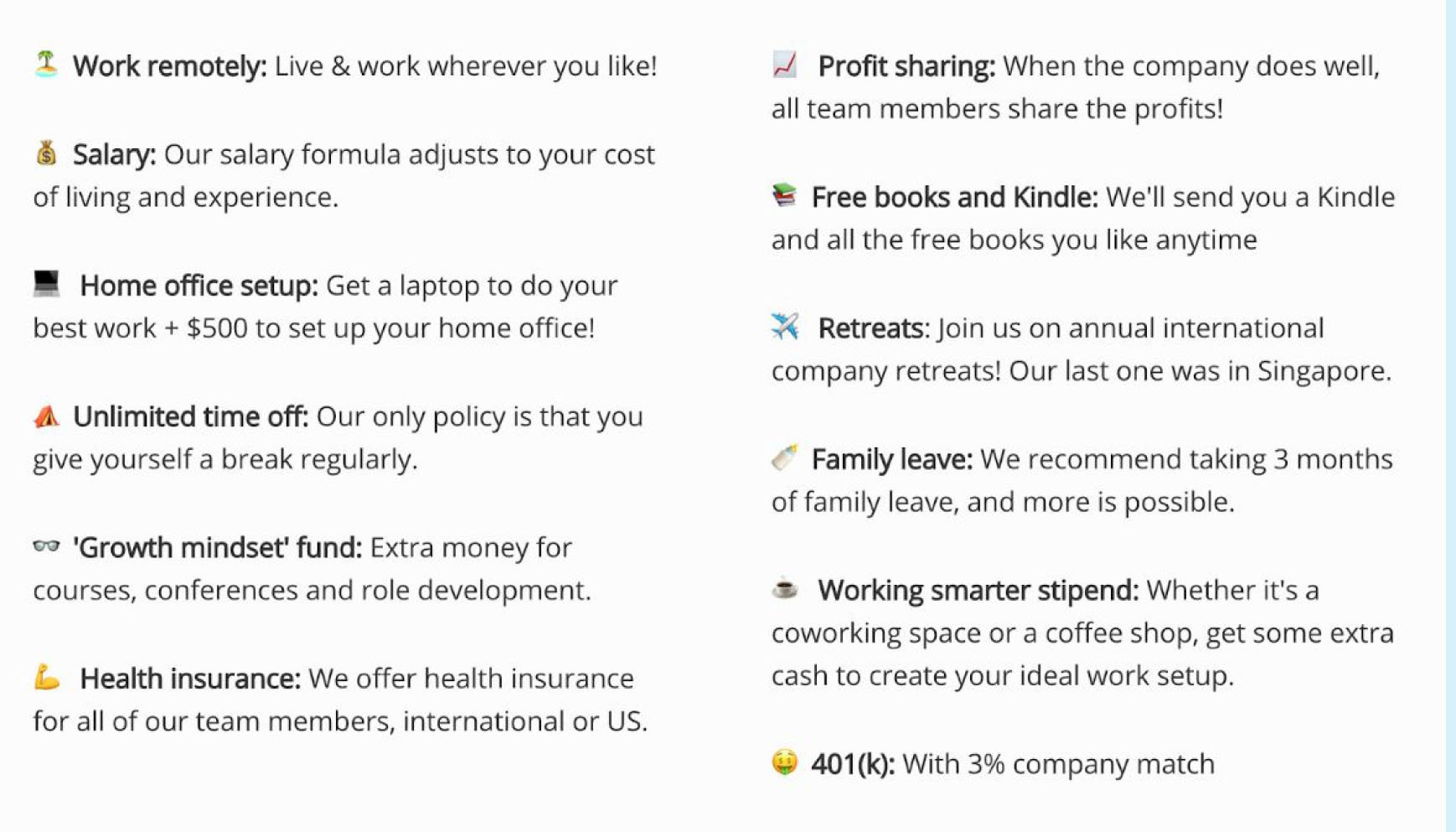Whether you’re bootstrapping your company or running with funding, you need to start thinking about your company culture from day one. Most companies think they have a culture, or would like to create one but only few manage to succeed. But why?
Because building a company culture is hard. It’s something that should be intrinsic to the running of your company and not a second priority.
For a business, particularly a startup, culture is everything. Your people, your processes and your product are all influenced by culture. Getting your culture right leads to a stronger, better team and ultimately, a stronger, better business.
But What is Company Culture?
For some, company culture is giving your team access to a recreational pool table, offering unlimited paid time off, or even having free lunches at work.
But for others - the ones who succeed - culture is more than that. It’s a set of principles or guidelines that tells your customers and your employees why you exist, what you want to achieve and how you hope to get there. Your culture should be embedded into everything you do as a business. It should assist your team with training to ensure that they’re aligned with your company’s main objectives. It will help them make smart, critical decisions that support your business.
Lead by Example
One of the easiest things you can do early on as a founder to instill company culture is to lead by example. You are the role model for which your employees base their own actions on. If you act in a certain way, they’ll tend to follow. However, there is a caveat. This type of behavior can often lead to employees trying to work long hours “because the boss does”.
This isn’t healthy. You also want to create a good work-life balance. If you decide you want to work 16 hour days, that’s fine, but make sure your employees know this isn’t mandatory. (Or if it is mandatory - be sure to pay them extra for their time).
Hire the Right People
When your culture is defined, you’ll be able to hire top talent. What’s more, you’ll receive applications from top talent. With the rise in remote jobs, location is no longer as big an issue as it was before. People get to decide where they work and have the full pick of the whole world.
With this location agnostic view in mind, make sure that you have your culture ready to go to attract top talent. It’s obviously a good idea to hire top talent with the right skills, but more so than that, if you hire for culture, you’ll build a team willing to learn what they don’t know and share what they do. When you interview new people, talk openly about your values and how they manifest into your company on a day to day basis. This will help potential candidates understand whether your company is somewhere they might like to work.
Cultivate Their Talent
Nobody knows everything. Running a business is a constant learning path and so is becoming an employee. You might start your role doing X, but very quickly that role develops and you starting doing X and Y, or maybe just Y.
Part of building a positive culture is allowing your team to grow. This means you, as a founder, should put systems and processes in place that allows your team to grow and develop beyond their current role. If an employee leaves a role with no new knowledge than they started with, you haven’t done your job properly as a founder.

Social Media management company Buffer understands that you need to treat your team well and have a range of perks that support that. Not only do they offer unlimited free books, but they pay for your home office set up and give you extra money if you want to attend a conference, start a course or just generally develop your role.
Go Beyond Work
You run a business and as such you want to get work done. But part of a good company culture involves going beyond work. Take an interest in your team beyond what they do from 9-5. Why not host non-work related outings or lunches where the only agenda is to get to know each other more. It sounds simple but bonding as a company is important. When your team feel as though they’re actually part of a team who likes and cares about one another, the quality of work will increase, but most importantly, their quality of life and happiness will increase. If you’re a smaller company, you might want to try making sure each of your team has regular time spent with you, the founder. This will help people get to know you more and see you less of a ‘big boss’ and more of ‘another employee with a different role’.

At Hubspot, executives take their teams on mystery dinners. These dinners are designed for team building and fun. What makes it even more exciting is the team doesn’t know where they’re going until just an hour before.
Positive Support Works Too
One way to quickly identify what your work culture is like is to see how often you reach out to your team. If you only email or talk to them when they’ve done something wrong or when you need something from them, there’s a good chance you’ve (unknowingly) employed a negative culture. This isn’t good for your company or your team’s morale. It’ll lead to people becoming scared whenever they open an email for fear of what they’ve done wrong. Instead, try to reach out to your team and talk to them at all times, especially when their work is good. Receiving positive support and praise is such a great booster to help your employees know that they’re not only doing great work but that the work they’re doing is valued.
Always Review Your Culture
Your business will grow and alongside that, so will your culture. As you hire more and more people and navigate the world, you might find that some aspects of your culture needs to change. This should be welcomed. Culture isn’t just a document you write once, send to new hires, and never look at again. It should run through the entirety of your company.
So How's Your Company Culture?
If you want to attract hard-working, top-talent, you need to think about your startup’s culture. Make culture a priority from the beginning and not something you’ll get to when you have 100 employees. By that point, your culture will be set naturally, but you could be unaware of it and it might not be what you want it to be. Setting a positive culture is a decisive move, not a passive one. What steps will you take to build your company culture?









comments